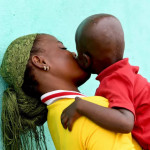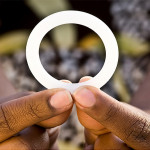Andrew Witty, chief executive officer of GlaxoSmithKline (GSK), announced yesterday that GSK will spend up to $80 million during the next 10 years to prevent mother-to-child HIV transmission and to support AIDS orphans and vulnerable children globally.
Witty also announced a $17 million fund to develop new HIV drugs for children. In addition, he said that GSK intends to collaborate with other companies on fixed-dose combination pills for HIV and that GSK will voluntarily license its drug abacavir (found in Ziagen, Epzicom and Trizivir) to the generic company Aspen Pharmaceuticals.
Despite the acknowledged success of drugs such as Retrovir (zidovudine) to prevent mother-to-child HIV transmission and the relatively low cost of the drug generically in the developing world, thousands of pregnant women each year still lack access to antiretrovirals (ARV) and good prenatal care and thus pass on HIV to their newborns.
Moreover, lack of access to ARVs also means that hundreds of thousands of HIV-positive women die each year, primarily in sub-Saharan Africa, leaving behind orphans. Many such orphans have no relatives to care for them and face grim futures. GSK, with its announcement Tuesday, has vowed to change those circumstances.
“Today we are announcing a new ‘Positive Action for Children’ Fund, which we will support with up to [$80] million over 10 years,” Witty said. “This fund will be for [nongovernmental organizations] and others who work to prevent mother-to-child transmission and who work with orphans and vulnerable children.”
Another problem is the lack of medicines available in the developing world that are approved to treat HIV in children, especially second-line therapies. GSK is committing both financial resources and technical expertise to help develop new pediatric medications for HIV.
Lastly, in order to improve first-line HIV treatment in developing countries and expand second-line treatment options, GSK has voluntarily licensed abacavir to Aspen Pharmaceuticals so that a low-cost generic version can be made available in places such as South Africa, which has one of the highest HIV rates in the world.
Advertisement
Advertisement
Advertisement






Comments
Comments